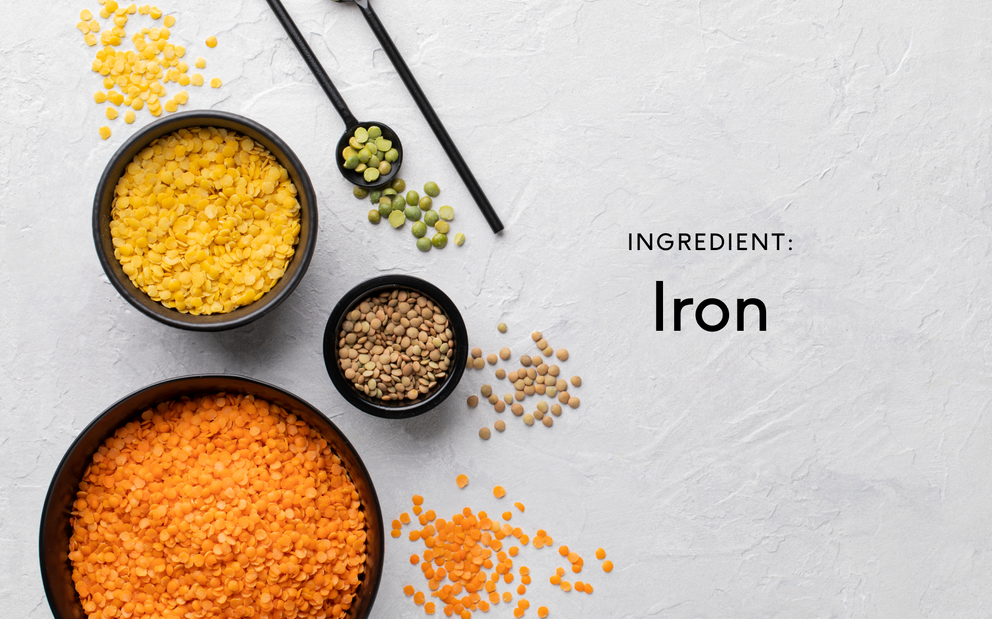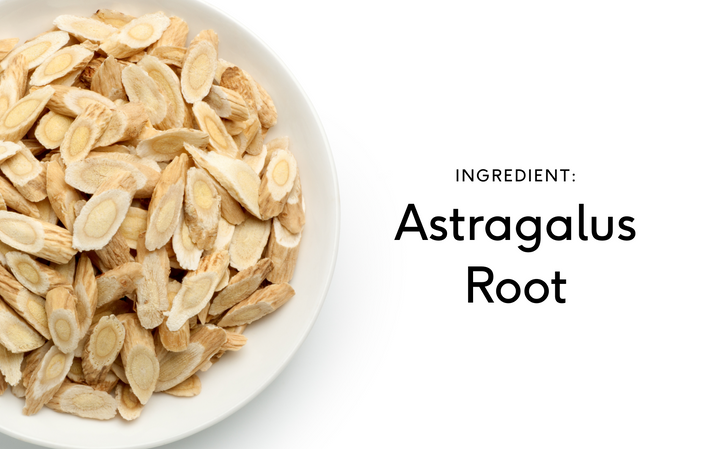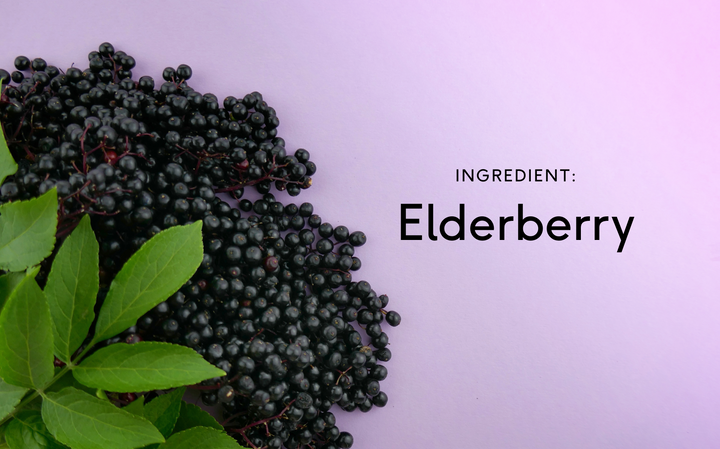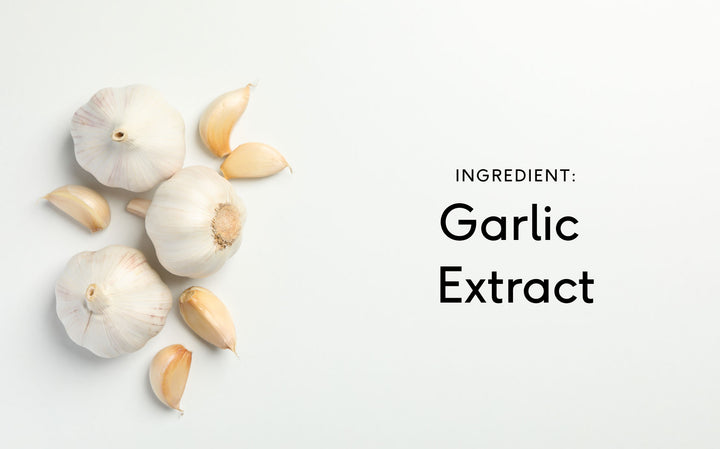Learn About Iron in 5 Minutes
Table of contents

What is iron?
Iron is an essential mineral, vital to blood cell production, and supplementation with this nutrient is critical for people who pursue animal-free diets.
- Improves your energy levels and cognitive abilities
- Transports oxygen throughout your blood by producing haemoglobin
- Protects against the dangerous symptoms of anaemia
- Iron supplementation is important for vegetarians, vegans, and pregnant women
Why we love iron
Iron is an essential nutrient, and without it, your body won’t be able to relay oxygen to your tissues. Especially if you don’t eat meat, it can be hard to get enough iron in your diet. However, plenty of supplements include too much iron, which could be harmful. In Feel, we provide just the right amount of iron to help your body thrive.
As long as you have enough iron in your system, you won’t have to worry about anaemia. Plus, supplementing with iron might even make you smarter and more psychologically resilient.
Unbelievable Benefits of Iron
Scientists have performed more than 50 studies to deepen their understanding of how iron interacts with the human body. Here are the results:
Neurological Benefits
By preventing anaemia, iron improves cognitive function in women of reproductive age. In general, iron deficiency harms your cognitive functions, and supplementing with Feel is an excellent way to make sure that you have the iron your nervous system needs to operate with optimum efficiency. Medical research also indicates that you have a lesser chance of being depressed if you ingest enough iron.
Energy Benefits
A comprehensive review of the relevant scientific literature found that “iron deficiency impairs energetic efficiency.” Essentially, not having enough iron forces your body to work harder to do everything. Therefore, you experience more fatigue no matter what you do when you are deficient in iron.
When you aren’t getting enough iron, you might display symptoms like irritability, fatigue, and trouble focusing. If you have sufficient iron levels, however, your blood can efficiently deploy oxygen throughout your body, which improves your mood and makes you less tired.
Cardiovascular Benefits
Iron binds with porphyrin in the body to make hemeproteins, which are proteins that contain heme. The two most abundant types of hemeproteins are haemoglobin and myoglobin, and your red blood cells contain these proteins.
When hemeproteins bind with oxygen, they can carry oxygen throughout your body. Every part of your body, including your heart, lungs, and brain, needs oxygen to survive, and without proper iron levels, your body can’t produce the red blood cells it needs to deliver oxygen to your tissues, and you become anaemic.
Anaemia makes your heart, lungs, and brain work harder, and it decreases the efficiency of your other organs. If anaemia isn’t treated with iron supplementation, your life expectancy can decrease due to wear and tear on your bodily tissues.
Menstrual Benefits
You can lose a lot of blood when you’re menstruating. Many women become anaemic during and immediately after their menstrual periods, but you can reduce the symptoms of menstrual anaemia by taking iron supplements.
Is iron water-soluble or fat-soluble?
Iron is water-soluble, but it is not as water-soluble as some other vitamins and minerals. For instance, it will not dissolve in a glass of water, but acids such as gastric acid, readily dissolve this mineral.
Where can iron be found naturally?
Iron is present in most meats, however if you're vegan you can find it in vegetables and legumes too. In addition, most types of store-bought breakfast cereals and breads are fortified with iron.
5 foods/drinks containing iron
1. Tofu 47% DV per half a cup
2. White beans 44% DV per cup or 128g
3. Dark chocolate 39% DV per 85g
4. Beef liver 28% DV per 85g
5. Lentils 34% DV per 1 cup or 128g
What is the recommended daily intake for iron?
According to the National Health Service (NHS), the recommended daily amount (RDA) of iron is 8mcg in adult men and 14mcg in adult women. Females need to consume higher amounts of iron to offset the blood loss associated with menstruation. After menopause, however, the RDA of iron for women falls to 8mcg.
Feel Pregnancy contains 14mg of iron (as bisglycinate), providing 100% of the daily recommended intake of iron for pregnancy.
What to consume to get a full daily dose of iron?
Tofu - approximately 230g
White beans - approximately 150g
Dark chocolate - approximately 220g
Beef liver - approximately 300g
Lentils - approximately 200g
Can you absorb enough of iron from food?
Even for people who eat animal products, it can be hard to get your daily RDA. In most foods this nutrient is only present in small quantities.
Why is iron necessary for your body?
The main function of iron in the body is the production of haemoglobin, which carries oxygen within your bloodstream. Without proper haemoglobin production, your tissues become starved for oxygen, which results in lethargy and even cell death.
Functions of iron
Cognitive functions: Anaemia results in cognitive damage. Proper iron ingestion protects against depression and neurodegenerative conditions.
Cardiovascular functions: Iron helps your heart operate more efficiently.
Reproductive functions: Iron assists in preventing menstrual anaemia.
Energy functions: Overall, iron serves as an agent for effective energy distribution throughout the body.
Symptoms of iron deficiency
Fatigue
One of the primary symptoms of anaemia, which is caused by iron deficiency, is fatigue. This symptom can result in unreasonable tiredness during the day and difficulty sleeping at night.
Muscle Weakness
Anaemia also results in muscle weakness, which can make it hard to walk, run, or engage in strenuous physical activities.
Cold Extremities
Reduced blood flow to your extremities makes them feel cold, and anaemia results in low blood pressure and slower blood flow.
How long do you need to take iron to start experiencing its benefits?
You may start to notice changes after taking iron for 1 week, but it may take up to 4 weeks for any iron supplement to be most effective.
Consistency is key and our research recommends taking your Feel supplements for at least 3 months to allow your body to adjust and provide the desired benefits.
How long does it take for your body to digest/absorb iron?
Heme iron, which is naturally present in liver and other meat products, absorbs at a much higher rate than other types of iron. Iron does not absorb rapidly; in most cases, less than 3% of this type of iron is absorbed over a 24-hour period. However, the unique composition of Feel accounts for this reduced absorption rate.
How long does iron stay in your body after you take it?
Iron is stored in your organ tissues, which means that it remains in your body for a significant period of time. Iron may remain in your body for a full year before it is used and excreted.
Is iron an antioxidant?
Iron does not appear to have any direct antioxidant action, but some research suggests that proper levels of iron in the body may improve the action of other antioxidants. Therefore, iron supplementation can reduce oxidative stress even though it does not directly combat free radicals.
Can you overdose on iron? What are the effects?
Yes, it is possible to overdose on iron, and doing so could be fatal. Early signs of iron poisoning include nausea and gastrointestinal stress, and if heightened levels of iron persist in the body, liver and brain failure can occur. By taking a multivitamin with carefully calibrated levels of iron, overdose on this mineral can be avoided.
Does iron dissolve, flush out, or build up in the body?
Iron builds up in the body over time, but it gradually flushes out. Ideally, your levels of iron intake should correspond to the time it takes for your body to flush this nutrient.
Can you take iron during a diet?
Iron consumption does not interfere with any diets. However, people who do not consume animal products may have trouble consuming adequate levels of iron.
Are there synthetic forms of iron?
Iron is not synthetic. Formulating synthetic iron would require advanced technical processes, and it is not economically feasible.
Why might synthetic forms of iron be better?
Theoretically, the production of synthetic iron may one day be necessary if human beings deplete the Earth’s stores of iron. There are no apparent benefits of synthetic iron.
Absorption rate of synthetic iron
If it were possible to synthesise heme iron, absorption rates of this type of iron would be far higher than iron. Otherwise, synthetic iron would have the same absorption rate as natural iron.
Why might natural forms of iron be better?
Currently, natural iron is the only form of this substance available on the market.
How to take iron
Orally supplementing with iron is the best way to take this essential mineral. Even for people with lots of time on their hands, getting the exact amount of iron you need every day in food is tricky, and doing so can be practically impossible for busy people pursuing animal-free diets.
Iron trends in medicine
Currently, ongoing research is being conducted to determine whether taking iron supplements daily or every other day is better in cases of severe iron deficiency. This research is meant to either confirm or deny the results of a landmark 2017 study.
Why everyone should be taking WeAreFeel supplements
Iron is one of the hardest essential nutrients to keep up with in your daily diet. While you may not notice the symptoms of iron deficiency for years, this condition gradually saps away at your quality of life and reduces your ability to enjoy your favourite activities. In Feel, we provide the exact amount of iron you need to promote healthy haemoglobin production and keep your energy levels up; enjoy whichever type of diet you prefer without fear of iron deficiency by supplementing with Feel!
Here’s the Proof
- Iron treatment normalises cognitive functioning in young women.
- Iron deficiency and cognitive functions
- Dietary zinc and iron intake and risk of depression: A meta-analysis.
- Iron Deficiency and Reduced Work Capacity: A Critical Review of the Research to Determine a Causal Relationship
- Heme Metabolism and Erythropoiesis
- Intermittent iron supplementation for reducing anaemia and its associated impairments in menstruating women.










































 Back
Back





